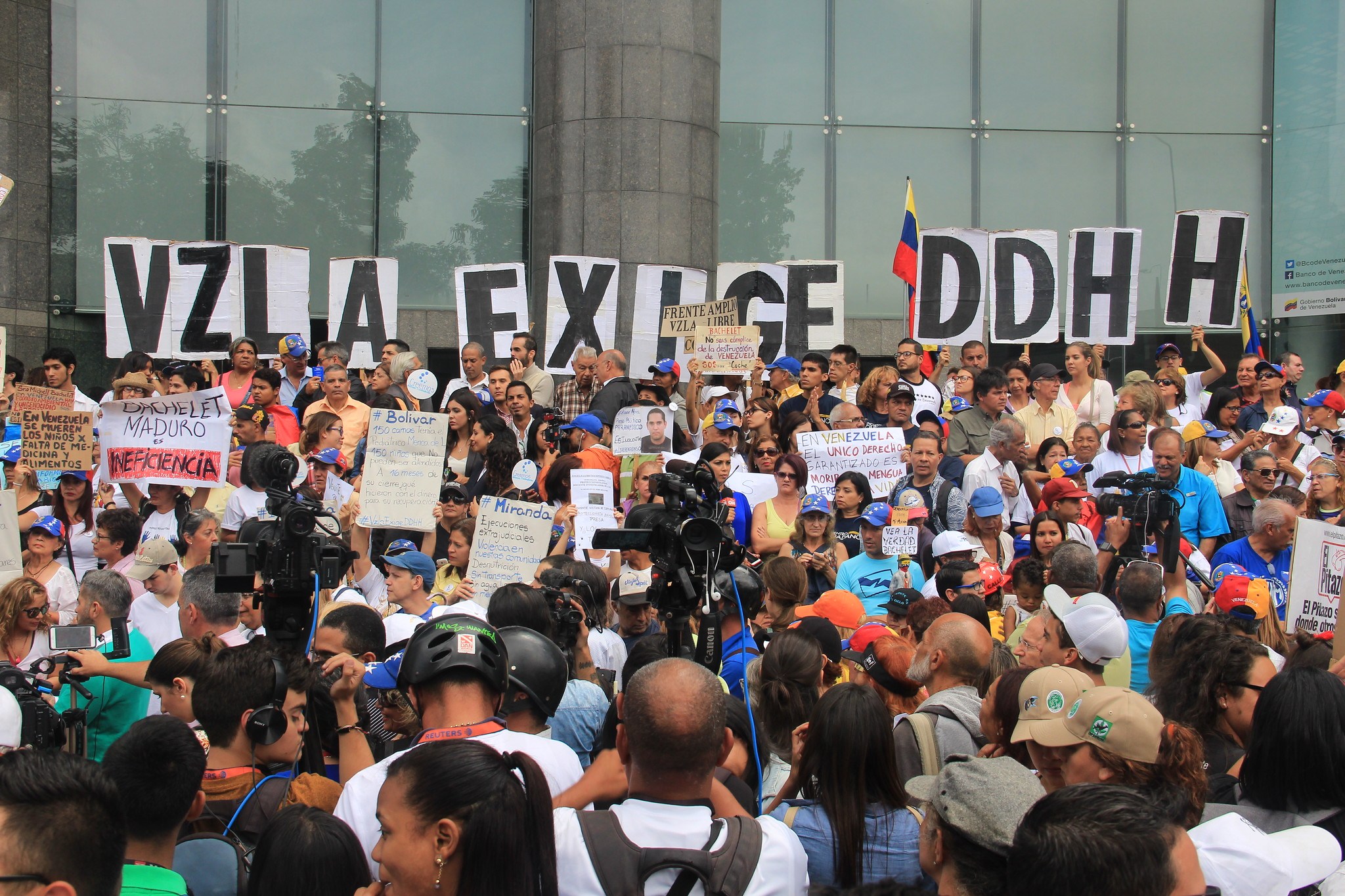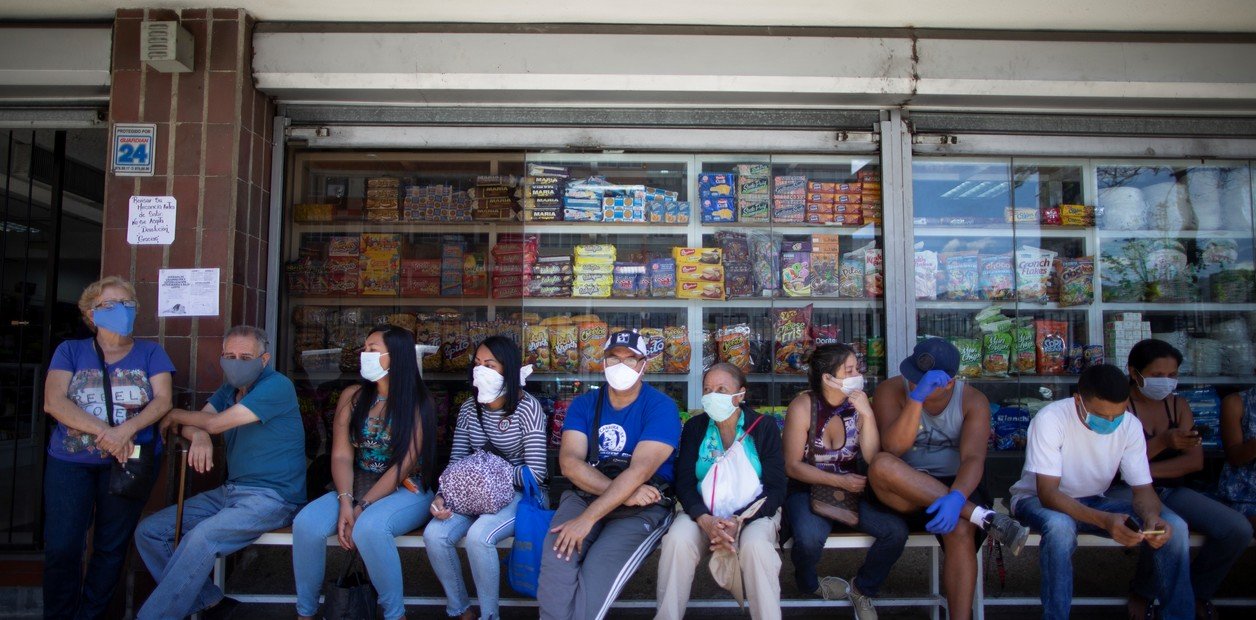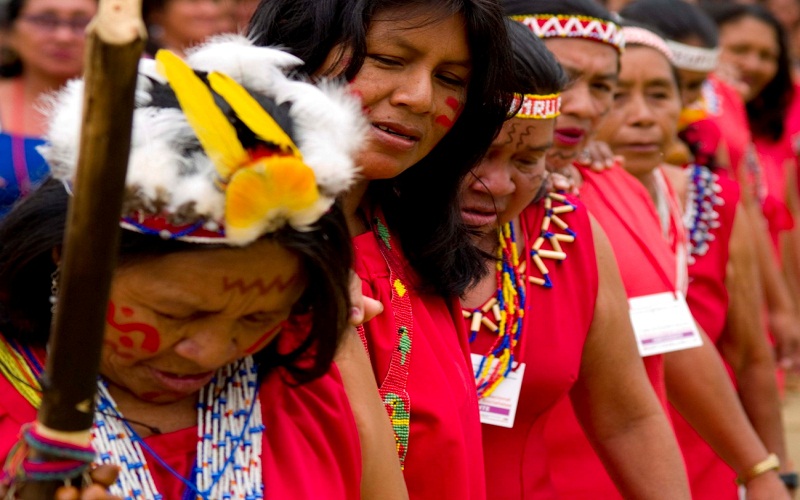Chavismo has been in power in Venezuela for the last 25 years, the same as the age of Gabriel Gutiérrez and Melannie Bonfissuto, two Venezuelan young adults who have spent all their lives under the Government of one single political system that, despite the transformations of the last decade, perpetuates the image and word of late Hugo Chávez.
Hugo Chávez, a former lieutenant colonel and leader of the failed coup of 1992, was sworn in as president of Venezuela on February 2, 1999.
Sixteen days later, Gabriel Gutiérrez was born in the state of Zulia, where he grew up surrounded by oil, the black gold that blessed this rich country for many years, especially during Chávez’s administration.
However, despite being surrounded by wealth, Gabriel did not enjoy many of its “benefits” or “luxuries” but rather had “just enough.” In the meanwhile, he saw other children from parents who worked in the still powerful state-run oil company PDVSA. attending better schools and leading more comfortable lives.
“I didn’t grow up with envy, but I did see that people who were on the side of Chavismo obtained more benefits,” said the young man, who could not help associating prosperity with oil, which, years later, pushed him to study engineering at university.
“I didn’t want to leave my country”
In 2021, Gabriel had to pause his studies to migrate to neighboring Colombia in search of “economic stability” and the means to help his mother, who stayed in Venezuela with a monthly income of 10 US dollars.
Gabriel worked as a salesman and waiter until he decided to migrate again, this time to Mexico, after left-wing Gustavo Petro rose to the Presidency of the Andean nation, triggering in the young man a “flashback” to the beginning of the “ decadence” of his country and the wish to avoid “living in a second Venezuela.”
Now in Mexico, Gabriel sells pillows while he pursues his studies online and waits for the approval of a permit to enter the United States.
“I didn’t want to leave my country, I wanted to spend my life where I was born (…) The political ideology of the country and the current political administration do not allow citizens to aspire, desire, grow and achieve their goals,” he expressed.
“I’ll stay”
Since her childhood, Melannie Bonfissuto has lived with her maternal grandparents in Caracas – where she was born on February 4, 1999 -, in an apartment where she often hosts her relatives, almost all of them living abroad today.
“We were always at home. It was a lively house,” she recalls.
Almost every day after school, she went to the family business in downtown Caracas, where she remembers seeing long lines of customers.
One day she saw her family worried and did not understand why, since they always seemed to be happy. She now understands that the reason was the expropriation of a nearby commercial property announced by President Chávez.

In her memory, this was the first time she realized that “something bigger” than them “was affecting them,” and they couldn’t control it.
Due to the economic crisis, a good part of her family migrated to Colombia and the United States, including her mother.
Although she has thought about leaving, she has decided to stay in her country, where, despite everything, she likes to live.
“I’ll stay. I like my country. You can still make a life here,” says the young woman, a psychologist who sees opportunities to continue studying and working in Venezuela.
To strengthen these opportunities, the Chavista Government of Nicolás Maduro launched the Gran Misión Venezuela Joven, a youth program that marks the “25 anniversary of Chavez’s rise to power”, with the promise of providing “support and maximum protection ” to Venezuelan youngsters, to whom the head of State often addresses on social media and his weekly TV show.
Journalists have tried to collect testimonies from young sympathizers of Chavismo, who frequently speak in favor of the so-called Bolivarian revolution on the State media, and from young members of the ruling PSUV party, but in none of the cases was there success.
Translated by José Rafael Medina




